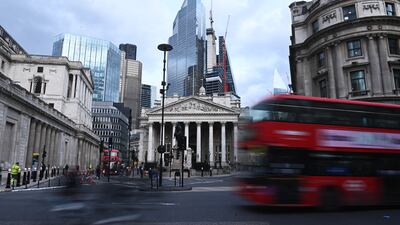We were the only people in an otherwise empty Savoy Grill. It was early and the place had not filled up. I was having breakfast with a leading City PR adviser. In the adjacent booth, Greg Dyke, the director general of the BBC, was dining with Jeff Randall, the broadcaster’s newly appointed business editor.
Because it was so quiet, we could hear pretty much every word. What I remember was Dyke treating Randall, and us, to a master-class dissection of what was wrong with the BBC’s attitude to business.
He was especially scathing about the flagship Radio 4 Today programme, saying how he could hear the sneer in the voice of presenters as they interviewed a company boss. They had nothing but contempt for those who chose making money as their career.
Unforgivably, the BBC TV News had failed to cover Vodafone’s £106 billion ($143.5bn) bid for Germany’s Mannesmann, then and still the biggest deal in UK corporate history.
Next door we were agreeing with Dyke’s every word. Randall, it was clear, was being tasked with putting that right. He was to make business prime time.
Randall did just that, although within the corporation the old guard saw Jeff as an alien, someone who wore a pinstripe suit and could get excited about profit figures. And spoke with an Essex twang.

The breakfast was more than 20 years ago, and Dyke and Randall have long quit the BBC. Today, it’s as if that period never happened, such is the BBC’s fitful coverage. Simon Jack, the business editor, does a creditable job but you get the impression he often fights to get his voice heard.
Business rarely features in a knowing, sophisticated way at peak periods on the main channels. If it does, it’s usually in a show exposing City bad behaviour or in knockabout entertainment dressed up as real life like The Apprentice, which only serves to conform to every anti-capitalist stereotype.
Now, as if to compound that view, the BBC is relocating its business journalists to Salford, in Greater Manchester.
This, despite the fact you can count on one hand the FTSE100 members based in the North of England, so the likelihood of a chairman or chief executive dropping into the studio for a face-to-face chat are virtually nil and most results and investor meetings and press conferences will occur in London. Oh, and has someone told the BBC: the City is in London.

Reporters get stories by hanging out with contacts, by getting to know them and winning their trust. How will that occur when the hacks are 320 kilometres away?
To compound the sense of absence of business, the department is to be renamed to Money and Work. No mention there of how work begets money. It’s as if the BBC high-ups regard business, the missing link, as a dirty word.
It’s all part, of course, of the great push away from London. In the BBC’s case it’s to do with the idea that as a publicly funded service it must be among the people, not centred on the capital. The result is staff shifted all over the UK, entire departments centred far away from London. This drive is accompanied, too, by a policy of favouring reporters and commentators with regional accents and “vox pops” in places like Wigan and Barnsley.
At times it comes across as bizarre, so the BBC news, which is relayed from London, from New Broadcasting House (but for how long?) must cut to Salford for someone to provide the sports bulletin because BBC Sport is now based there. Presumably, BBC Business, such as it is, will go the same way.
The BBC is only in the vanguard of what has become a crusade in government, of the need for “levelling up”. A day does not go by without a Cabinet minister referring to this plank in policy. An early hit is moving civil servants out of London, to the post-industrial North and Midlands.

Relative to the difficulty of achieving some semblance of equality between those regions and London and the South-East, forcing government employees to up sticks is an easy win. It’s not without pain and protest as those with children at school resist joining the exodus. But compared with executing the big picture it is quick.
This is the problem. It’s gesture politics, tokenism that gives ministers something to point towards but makes no positive difference.
Levelling up is huge, requiring investment on an enormous scale, in infrastructure and skills. Sticking offices here and there is not the solution. It looks good and makes for banner headlines in local newspapers and on local news bulletins and allows newly elected Conservative MPs from that part of the world to congratulate Boris Johnson and his colleagues on their commitment to exacting change.
But as officials find themselves removed from the national and international hub of London, surely the quality of their work must suffer. They’re simply not as close to those in charge (who usually remain in London, naturally), to the buzz, to current thinking and trends. I say that as a Northerner myself.
It smacks of socialist planning and overkill. It’s the same with the BBC. Money and Work. If only it was so simple.


